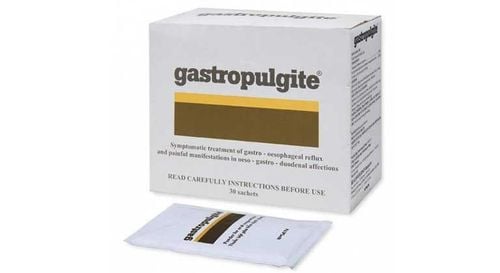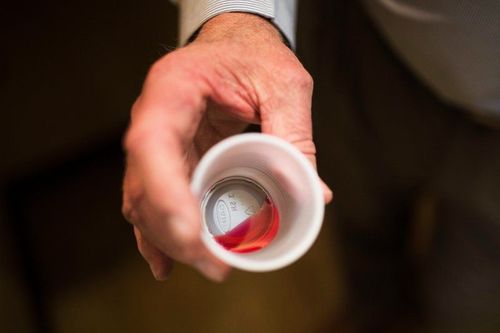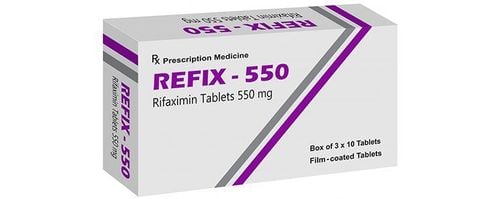This is an automatically translated article.
Appendicitis is one of the causes of abdominal pain in elderly patients. Appendicitis in the elderly presents with abdominal pain with features and characteristics that are often different from younger patients, older patients often have unclear symptoms, leading to late arrival to the hospital. when the condition is more advanced.1. Causes of appendicitis in the elderly
The pathogenesis of appendicitis in general and appendicitis in the elderly is still controversial. Appendicitis can be explained by the following theories:Infection: The infection theory refers to bacteria as the cause of inflammation in the appendix. Vasomotor disorders: Under the influence of nerves, the appendix vasoconstricts, leading to nutritional disorders, creating favorable conditions for bacteria to grow. Movement disorders: This theory assumes that intestinal motility disorders, causing stagnation of stool, leading to damage to the lining of the appendix, is an opportunity for bacteria to invade causing appendicitis. Allergies: Allergic mechanisms may be related to appendicitis.
2. Symptoms of appendicitis in the elderly
The appendix is located at the end of the cecum, a special part of the digestive tract, the appendix participates in the body's immune mechanism. Appendicitis presents with a wide variety of symptoms; however, the diagnosis of appendicitis in the elderly becomes more difficult as the symptoms of appendicitis in this age group are often atypical, and easily confused with other gastrointestinal diseases or diseases of other organs. Possible symptoms include:Abdominal pain: Abdominal pain is a common symptom in patients with appendicitis, however, older patients often have a more vague onset of abdominal pain, pain severity is usually mild. Moreover, the location of pain is not clear, leading to confusion with other diseases. Even when severe appendicitis leads to peritonitis, abdominal pain is less pronounced in the elderly than in younger patients. Nearly one-third of elderly patients with appendicitis have no pain localized to the right lower quadrant of the abdomen, and one-quarter of elderly patients present with insignificant, dull pain at this site. Fever: Elderly patients with appendicitis may have no fever or mild fever, up to 50% of elderly patients have appendicitis but have no fever or no leukocytosis, which makes late detection and diagnosis. Anorexia: Older appendicitis patients may present to the hospital with anorexia, although the incidence is not very high.
3. Progression and complications of appendicitis in the elderly
Appendicitis is a surgical emergency, if not diagnosed and treated promptly, it will leave serious consequences, the complication rate after 72 hours is over 90%. Especially in elderly patients, early detection and diagnosis pose great challenges, as appendicitis symptoms in this age group tend to be vague and unclear. Besides, the elderly often have comorbidities, which increases the complication rate of appendicitis before, during and after treatment intervention.Perforation, rupture of the appendix: If appendicitis is not treated promptly, it can cause the appendix to perforate or burst, leading to peritonitis, threatening the patient's life. About 50% of appendicitis in the elderly leads to a perforation of the appendix, which is 5 times higher than appendicitis in the young. One possible explanation for this is that 75% of elderly patients are found to have appendicitis after more than 24 hours. Abdominal abscess: The formation of a pocket of pus in the abdomen can be a consequence of appendicitis, the treatment intervention at this time becomes more complicated than the original appendicitis. Blood clot formation, cardiovascular and respiratory problems: These are symptoms that can be seen in elderly appendicitis patients with comorbidities such as diabetes, lung disease, heart failure, kidney failure. Mortality: While appendicitis patients over the age of 60 make up only about 10% of all acute appendicitis patients, up to 50% of appendicitis deaths are reported in this group of patients. this old age.
4. Differential diagnosis
Sensation in the elderly is often reduced, the symptoms of appendicitis in the elderly are often vague, making the diagnosis can be delayed and confused with other diseases, leading to a higher rate of complications and death. compared with younger patients. Therefore, in the diagnosis of appendicitis in the elderly, it is necessary to exclude and differentiate it from other diseases.Diseases of the biliary tract: Abdominal pain in elderly patients can be confused with cholelithiasis, common bile duct stones, cholecystitis,... This is the most common disease in elderly patients with symptoms. belly ache. Mesenteric Infarction: Although only 1% of elderly patients present with abdominal pain, the mortality rate is up to 70-90%, making differential diagnosis of appendicitis very important. . Diverticulitis: Diverticulitis occurs in 50-80% of people over the age of 65 in the United States, diverticulitis can present with symptoms that are confused with appendicitis. Abdominal aortic aneurysm: This is a dangerous condition, easy to misdiagnose, should be focused in the examination of patients admitted to the hospital because of abdominal pain. Malignant pathology: Atypical symptoms seen in appendicitis in the elderly, may also be manifestations of malignancies in the gastrointestinal tract. Gastroenteritis: Half of appendicitis patients are missed because the initial diagnosis is mistaken for gastroenteritis because of similar symptoms such as abdominal pain, vomiting, diarrhea. In summary, appendicitis in the elderly is a surgical emergency; however, the symptoms in older patients are often vague and atypical, compared with appendicitis in young people; Appendicitis in the elderly is easily confused with other diseases. Early detection, accurate diagnosis and timely treatment of appendicitis in the elderly are very important to avoid dangerous complications for patients.
Reference source: www.benhvien103.vn; suckhoedoisong.vn.
Please dial HOTLINE for more information or register for an appointment HERE. Download MyVinmec app to make appointments faster and to manage your bookings easily.













